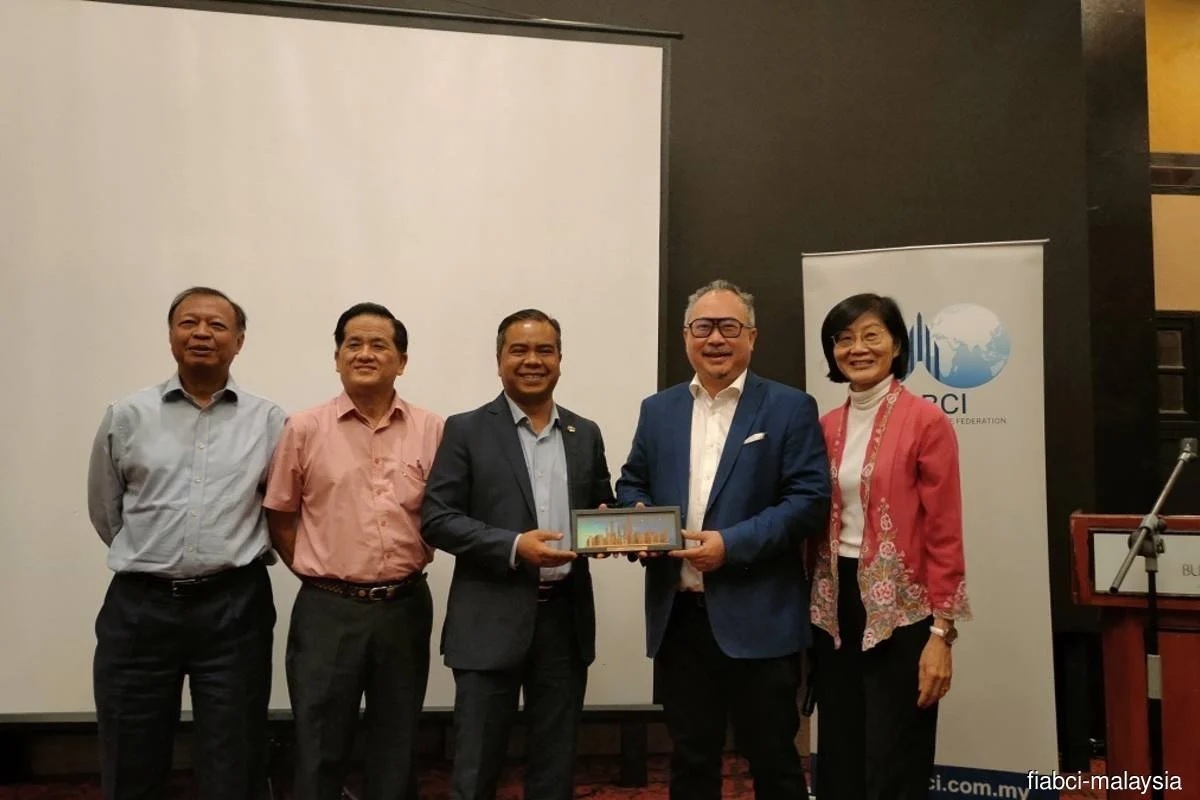FIABCI Malaysia: Indonesia’s new Nusantara capital touted as next economic hub

- FIABCI Asia Pacific region president and special envoy for foreign affairs Rusmin Lawin: We hope Nusantara will become the next, new sustainable innovation centre in the country. Our goal is to lay the foundations for it to become the capital city with smart, sustainable features and good access to all the key ports.
KUALA LUMPUR (May 3): Indonesia’s planned city Nusantara is poised to become the next economic hub in the country, as highlighted by FIABCI Asia Pacific region president and special envoy for foreign affairs Rusmin Lawin at the International Real Estate Federation (FIABCI) Malaysia Morning Talk at Dewan Berjaya, Bukit Kiara earlier on Wednesday (May 3).
“We hope Nusantara will bring in high [profile] brands in Indonesia (and for the entire Southeast Asia and Asia region) to become one of the biggest economic hubs of the world, besides China and Europe,” he said during a presentation.
“There are many economic and investment opportunities that can derive from this development, especially with the ever-growing population in Indonesia… In Jakarta, we have more than 10 million people, which leads to congestion, hence why the government and private sectors have been eyeing for the next new hub in Indonesia,” he added.
According to Rusmin, regional collaboration and convergence should be leveraged for the development. “It is a good time to work together under Asean, specifically Brunei Darussalam, Indonesia, Malaysia, Philippines East Asia Growth Area (or BIMP-EAGA), including Sabah and Sarawak, and to [increase] the level of B2B (business-to-business) between the countries. We have similar cultures and business perspectives, which will indeed help in the long-term growth.
“We hope Nusantara will become the next, new sustainable innovation centre in the country. Our goal is to lay the foundations for it to become the capital city with smart, sustainable features and good access to all the key ports."
Nusantara, whose construction started last year, comprises a total land and water area of 324,332ha. “Its land area is 256,142ha [with an urban area of 56,180ha, development area of 199,962ha and government core area of 6,671ha] and it is strategically located in east Kalimantan, between Samarinda and Balikpapan,” said Rusmin. The development is expected to be fully completed in 2045.
The planned city will comprise nine economic generators, namely the government core area; economic financial centre; renewable energy area; tourism and leisure; education services; innovation and research; agro-commodities, trade, and logistics; agriculture; and fisheries.
In terms of Nusantara’s connectivity plan, Rusmin said: “There will be a toll road between Balikpapan-Nusantara, which will include immersive tunnels. The airport toll road, which is 47.63km, will connect Nusantara’s core area and Sepinggan International Airport in Balikpapan, and will have a travelling time of 30 minutes”. Nusantara will also be connected to sea ports such as the Buluminung Terminal, Lango Dock, Balang Island Dock, IHM Dock and IKU Dock.
Development plans for Nusantara for 2024 will be centred around Sub-area 1A, which will be the centre for government, to support a fully functional ecosystem in the development. Subsequent development stages are still under planning stages. “Nusantara’s site progression is about 26% (since construction started last year). The offices are still under construction. To date, there are about 100,000 people that are deployed and working there, with housing for the workers,” said Rusmin. “By 2024, Nusantara will be a fully functional city, with its core ecosystem.”
Meanwhile, Nusantara’s long-term plan are segregated by the following stages — initiate transfer of selected government offices (2022 to 2024), strengthen Nusantara’s core areas and expand its housing, office and commercial zones (2025 to 2029), develop education and health sectors and high-tech industries (2030 to 2034), complete construction of all infrastructure and three city ecosystem in a bid to accelerate Kalimantan’s development, and to solidify its reputation as the “World City for All” (2040 to 2045).
Rusmin adds that Nusantara aims to be a carbon-neutral city by 2045, and that the development will aim to conserve 65% of the tropical forest, which will allow the city to achieve a net carbon sink before 2030.
According to him, three investors will build civil servant housing in Nusantara with a total investment of US$2.7 billion. “It will comprise 184 towers and 14,500 people living there.”
The three companies that have committed to this goal are CCFG Corp Consortium and Risjadson Brunsfield Nusantara (IDR 30.8 trillion), Korea Land and Housing Corp (IDR 8.65 trillion) and Summarecon Agung (IDR 1.67 trillion). “The three companies have received a letter to proceed from Indonesia’s Minister of Public Works and Public Housing. The projects will be completed by 2024 and will be ready for occupancy by August next year,” Rusmin said.
The Indonesian government has also set up PT Bina Karya (Persero), an authority-owned enterprise to expedite the B2B transaction processes with private sectors in Nusantara. “Its drafted regulations on investing will include tax holiday for investment, tax holiday for office relocation, super tax-deduction for selected activities, special treatment on customs and excise, special tax treatment for financial centres, and special treatment for value-added tax,” he added.
Never miss out
Sign up to get breaking news, unique insights, event invites and more from EdgeProp.
Latest publications
Malaysia's Most
Loved Property App
The only property app you need. More than 200,000 sale/rent listings and daily property news.
